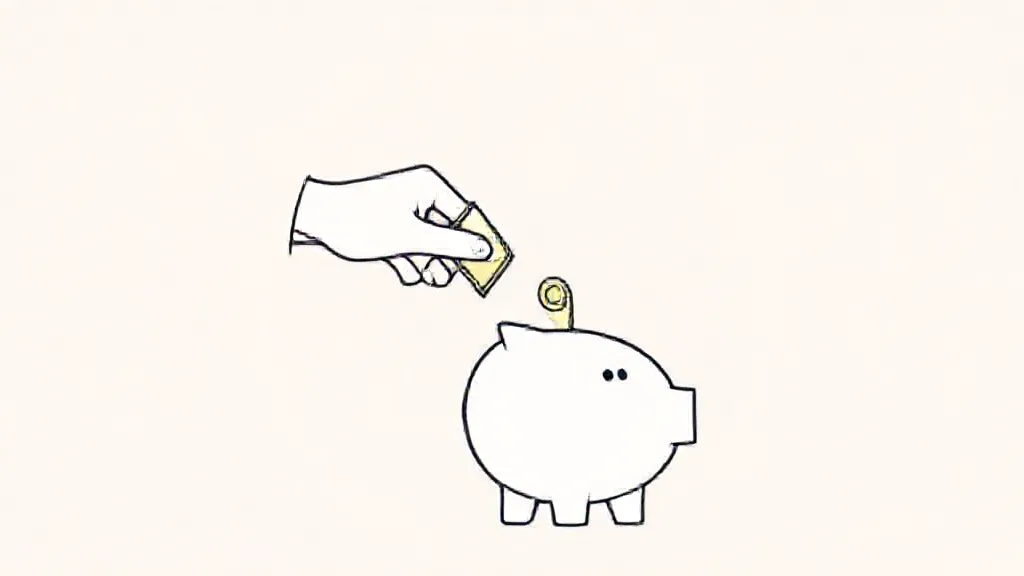In the world of personal finance, the concept of "paying yourself first" has emerged as a revolutionary strategy that can significantly alter one's financial landscape. This principle emphasizes the importance of prioritizing savings and investments before addressing other expenses. By adopting this approach, individuals can ensure that they are consistently setting aside a portion of their income for future needs, ultimately leading to greater financial stability and wealth accumulation.
The Core Principle of Paying Yourself First
At its essence, paying yourself first means allocating a predetermined percentage of your income to savings or investment accounts before spending on discretionary items or necessary expenses. This method serves as a powerful budgeting tool that helps individuals take control of their financial destinies. The beauty of this strategy lies in its simplicity; by making savings a non-negotiable part of your financial plan, you create a habit that fosters long-term financial health.
The Psychological Shift Towards Financial Discipline
One of the most significant benefits of paying yourself first is the psychological shift it encourages. By treating savings as a fixed expense, similar to rent or utilities, individuals begin to view their savings goals as essential rather than optional. This mindset can lead to improved financial discipline, as individuals are less likely to succumb to impulse purchases when they have already committed a portion of their income to savings.
Over time, this shift can create a more positive relationship with money, reducing anxiety and increasing confidence in financial decision-making.
Building an Emergency Fund: A Crucial Step
Implementing a pay-yourself-first strategy is particularly effective in building an emergency fund. Financial experts recommend saving three to six months' worth of living expenses in a readily accessible account.
By prioritizing this savings goal, individuals can better prepare for unexpected expenses, such as medical emergencies or job loss, without resorting to high-interest debt. This safety net not only provides peace of mind but also reinforces the habit of saving consistently.
Investing for the Future: The Power of Compound Interest
Another game-changing aspect of paying yourself first is its potential to enhance investment growth through compound interest.
When individuals allocate funds to investment accounts regularly, they benefit from the compounding effect, where earnings on investments generate additional earnings over time. This principle underscores the importance of starting early; even small, consistent contributions can grow substantially over the years, leading to significant wealth accumulation by retirement age.
The Role of Automation in Financial Success
To maximize the effectiveness of the pay-yourself-first strategy, automation is key.
Setting up automatic transfers from checking to savings or investment accounts ensures that individuals adhere to their savings goals without the temptation to spend that money. Automation simplifies the process, making it easier to prioritize savings and reducing the likelihood of forgetting to set aside funds. This approach allows individuals to build their savings effortlessly, creating a more secure financial future.
Overcoming Common Obstacles to Saving
Despite the clear benefits of paying yourself first, many individuals encounter obstacles that hinder their ability to save consistently. Common challenges include high living expenses, debt obligations, and a lack of financial literacy. However, by adopting a mindset of prioritization and making small adjustments to their budgets, individuals can overcome these barriers.
For instance, identifying areas where spending can be reduced, such as dining out or subscription services, can free up funds for savings.
Long-Term Financial Goals: The Bigger Picture
Ultimately, the practice of paying yourself first contributes to achieving long-term financial goals, such as home ownership, education funding, or retirement. By consistently setting aside money, individuals can create a solid foundation for their financial futures.
This proactive approach not only fosters a sense of accomplishment but also empowers individuals to take charge of their financial destinies, making informed decisions that align with their aspirations.
Conclusion: A Transformative Financial Strategy
In conclusion, paying yourself first is more than just a budgeting technique; it is a transformative financial strategy that can lead to lasting financial success. By prioritizing savings, individuals can build emergency funds, invest for the future, and cultivate healthy financial habits.
The psychological benefits, coupled with the practical advantages of automation and compounding, make this approach a game-changer in personal finance. Embracing the principle of paying yourself first can ultimately set the stage for a secure and prosperous financial future.
